|
Keep Calm and anything doesn't really suit my nature. I mean it when I reply to people who tell me, inanely, to 'relax' that "this is me relaxed". My brain works on overdrive all the time. A situation that would bring a few questions to mind for most people, generates hundreds of questions in my head. So, as you might guess, waiting patiently is not my thing. I think maybe, in some alternate universe where I try to see the good side, having to wait for answers about my writing is a good thing for me. I'm slowly learning that everything does not need to happen RIGHT NOW. My friend sent me a beautiful quote that, oddly enough, did making me relax a little. I always feel like I just have this short window of opportunity to start and complete something but this a self-imposed window. I box myself in by creating deadlines or telling myself that I have something to prove. This works against you in writing. There is no time limit here and this needs to be remembered. Also, it's true when you're told that this is a subjective business. So far, for my current query, I've had a few "it's not right for me" but "perhaps another agent", rejection letters. It is hard to have someone turn down something that matters to you. In fact, I sent my best friend and husband a text earlier this week that said something along the lines of: I don't want to do this anymore. I can't keep sending my work out there. I, with my inability to WAIT for anything, got a little down when I entered a very cool pitch contest on Brenda Drake's website and had no immediate responses. I felt that if I got some requests, I should keep going, but if I didn't, I should take a break. Here's the important thing though: I can't take a break from writing. The words and characters won't stop forming in my head so, in the end, whether I get published or not, if my work is requested or not, it's part of who I am. Keep calm? I have to write to do that. I have a tendency to obsess and need immediate results. This is not a good combo in the writing world. Fortunately, I have a strong support system that is used to me, ignores my defeatest texts, tells me to take a breath and doesn't mock me, too much, when I send a follow up text about an hour later that reads: Disregard last text. Just got a request. Still bring pop, please. Actually, I got three requests from the "Pitch Party" and I am thrilled and excited and feel like I'm starting at the bottom of the roller coaster, again. However, I think it was a good little learning curve for me because it reinforced what I've already said: you have to write for you. It's where your best writing comes from. You have to be willing to listen and accept feedback and critiques AND rejection. If you decide to pursue the path to being published, you have to be willing to move forward, fight for it, get your writing out there and understand that it is a subjective business. It's like anything in life, I suppose, you have to really want it and the harder it is to get, the more you'll appreciate it when the good moments come.
 If it was...I'd be out! If you've been reading my posts, you know that in the last seven months, I have gone from writing just for fun, to being agented, to being on submission, to being un-agented. If you haven't been reading, then you are now joining me at the "un-agented" phase.
Now that I've been exposed to people liking my work and wanting to make it into an actual, hold-in-your-hands, turn-real-pages book, I feel this overwhelming desire for it to be so. I can't really say that I'm back to square one because I'm not sure that I started there. I think I started sort of in the middle, spun around several times, and landed, here. The benefit, for me, of having approached the writing industry in this way is that I was safely tucked away in my agented corner. I am a self-doubter to the maximum degree and so I think that if I had just started, like so many do, by sending my work out there, without knowing how to make it stronger and getting rejection after rejection, I would have buried myself away from the writing world. Instead, I felt free to explore and connect and learn. All of those things have been invaluable. I feel like I am far more prepared to query than I would have been without the last seven months of making those connections and learning about the industry. Of course, none of this makes me an expert, which is proved by the three rejection emails I've received in the last week. It has, however, made it easier to get back up. Now that I've spent time connecting with other writers, I realize that querying is, thankfully, not like sports. If one player gets ahead, it doesn't mean the other player loses. There's no keeping score, you can always improve your 'game', and if you get older, it doesn't affect your performance negatively. Most importantly, when you feel like you're on a "losing streak", it's not always as bad as you think. When I mentioned to my friend and reader, Lauren (visit her site for great information and help on writing and editing) that I'd received 3 rejections, she said "that's not so bad". Well, it's not so good either. However, the big thing for me is that by having Carly sign me, even though it didn't work out the way I hoped, it was like I was front-end loaded with confidence. It's waning a bit but not enough to stop. The desire to keep going is fueled by the kindness that accompanies the rejection emails. They have encouraged me to keep writing, send to other agents, and apologized for not being interested at this time. Yes, I know it's a form letter but it could also say: "No", "No thanks", "Not for us". It speaks to the kind of people that writers, agents, publishers, editors, and readers are. When you fall in love with a book, it's already been loved by others, numerous times (I'm sorry to say you weren't its first). To make it through the long journey that is the book industry, the people fighting for you have to believe in you and your words one hundred percent. Or more. I appreciate that someone has taken the time to create a form letter that says, "This isn't for me but it's a subjective business. Keep trying." In sports, when you have a bad game, you watch playbacks to see where you could improve. In writing, you count on people to be honest with you about what works in your writing and what doesn't. What I have learned, for sure, is that if you are at the point where you want to share your writing, you want to be certain that it stands out. I am learning, slowly, that to stand out, to stay in the game, takes patience, revision, more patience, and an understanding that three outs don't necessarily mean it's over. I should note that I do not play any sports at all, unless you count online shopping or being able to stand on a paddle board for longer than one minute without falling. Therefore, I think this adds strength to my sports metaphor. Or undermines it. I'm not sure which. The End...maybe That call? The one that makes you feel like you haven't been wasting your time and fooling yourself? It came in an email first, for me anyway. In the email, Carly said she really liked The Princess and the Please and thought it had great commercial potential. She asked what I wanted in an agent and could she phone me? Um, YES! So she did.
You think it went like this: once we went through edits and revisions, Carly sends off the manuscript, editors and publishers loved it, and Carly phones to tell me I have to decide which book deal I want to take. That's a lovely ending. But it's not the one that happened. We did go through revisions and Carly did send it out to editors and publishers. They did not love it as we did. They did not offer any such deal but they did offer us best wishes. While this was happening and I was at home wondering, every single day, if today would be the day, I began writing more and more. I sent some of that writing to my agent who responded with feedback. Still, I waited. I wrote. Waited, wrote, waited, wrote. What's the worst thing that can happen? This book isn't going to work so you and your agent get the next project ready to go and try again, right? Maybe. In a lot of cases, I'm sure it does. For me, I got another email asking about a good time to phone. I thought (hoped, prayed, and wished) that it would be to talk about my contemporary romance novel that I had sent her a couple of months prior. It wasn't. For me, this part of the story ended like this: Carly phoned to say that while I was professional to work with and had done nothing wrong, Princess wasn't getting picked up and she wasn't in love with any of the writing I had sent her in the mean time. She felt that she was no longer the best agent to represent me and this would be the end of our journey together. Questions and thoughts that jump around like mini madmen in your mind: "It's me, isn't it?", "Will I ever get another agent?", "Is this a sign?", "Did I make this happen?", "Do I actually have talent or was this a fluke?" All of those questions, and more, looped through my brain and still do. Really though, it's just a matter of it no longer being the best fit. No hard feelings, unpleasant words, or mixed messages. I suppose it could have gone down differently but in the end, it's the most civilized "break-up" I've ever had and we didn't even have to give each other back our stuff. She didn't unfriend me on Goodreads or block me on Twitter. In fact, she said she'd give me some advice on the last thing I sent her and if I had questions, I knew she was always around on Twitter. Was it easy? No. Was I sad? Yes. Can I do anything about it? Yes and No. I can't make her take me back but we parted ways gracefully so I can only hope that it means new things will come. I've spoken of the writing community many times in the past year and once again, they are this amazing group of people that don't hate you if you succeed and don't pretend not to know you if you don't. I emailed Tanya, spoke to Carolyn (storytime), and reached out to new friends made on Twitter. They offered regret on my behalf, words of wisdom, and positive encouragement. How much more can you ask for than that? It's not the ending I wanted or any author wants. I doubt it's the phone call or ending Carly wanted either. So what now? Well, I still have the Children's Festival next week, which I thought I should cancel because I was feeling like a 'fraud'. Then I decided no, I still have things to offer, things that made Carly notice my work in the first place. I'll do that. I'll keep getting to know the writing community. I'll keep writing and reading. I'll keep hoping it wasn't a fluke. Five things that wouldn't have happened if I had not gone to the writer's conference that weekend:
Last week I wrote about how I started my journey of "professional" writing. If you missed the first one, just scroll down to last week's blog to catch up. The middle When I ended last week, I told you I had a scheduled blue pencil session and a pitch session. Common sense helped me pick who I wanted to sit down with: I looked through the lists of authors and agents and chose people that worked with or represented what I'd brought with me to the conference. Sometimes, as I did with Tanya and Carly, you take what you read about them and then just go with your gut. Before I tell you how my sessions went, I'll point out what I should have done to be more prepared. When I think about what I didn't know when I attended, I realize how lucky I am to have been successful. What I should have known before I went:
So, what was it like?
What came next? The biggest part of this whole process: the waiting. There is a lot of waiting in this industry. So I tried, unsuccessfully, to pretend that it didn't matter if Carly emailed. I was surprised by how much being surrounded by writers and books inspired me to write. Since I came home from the conference, I have not stopped doing three things: writing, reading, and waiting. So how did it end? Not that the journey is over but what was the result of going and putting my writing out there for others to read? While you may think you know what I will write in next week's third and final blog in this series, I can promise you, you do not. Even I did not know how this particular journey would end until this week. Where am now in my journey? What's it like to get the phone call from an agent who wants to represent your work? How can you prepare for that phone call? You'll have to come back next week and read the third in this three part series to find out! What stage of your writing journey are you at? What do you find most difficult?
When I was little I would get out some paper and a pen or pencil and call myself a writer. What more could anyone need if they wanted to write stories? When my daughters want to write, they ask if I can get off the laptop, if they can use the iPad, or go onto the desk top computer. Lots of times, I tell them that they have to use the old fashion method of paper and ink. I think there's power in this for them. As a writer, there is still something that moves me about writing the words that fumble around in my brain down on a piece of paper and reading over it, realizing that it's become something more than jumbled words. We can backspace and delete on our laptops but I believe pen to paper will always have value. That can be another post.
When I was in high school I got a very nice Smith Corona typewriter. When something really mattered, I'd type up a final draft on that. In University, I purchased my own computer and parted ways with my pen and paper unless necessary. As I've waded into the waters of "professional" writing (sharing with an agent, getting an agent, being on submission), I've come to realize that there are many more tools necessary for today's aspiring authors. It's more than just the medium we use to get our words down; much more. In teaching (I teach elementary), we need to be very aware of (and hopefully utilizing) 'best practices'. This means that we are up to date on current research and information on how to facilitate student success. It is very similar in writing. It is not just paper, pen, a list of agencies to query, and some stamps anymore. What does today's writer need in their toolkit?
What else? What's important in your writing toolkit? What makes you stronger or more confident as a writer? When you're learning something new, it's really nice to focus on understanding that one concept, narrowing in on it until you have grasped it completely. Let's be honest: this never happens. There's always more than one thing to learn at a time. Most knowledge is intricately woven together with the old and the new. While I learn to navigate the 'writing world' there are layers upon layers of what to know, how to communicate, how to establish yourself, and, of course, how to use social media to bring attention to your writing. Blogging, tweeting, posting; and all of these have nothing to do with actually writing your manuscript, whatever it might be.
I read multiple posts every week on ways to use Pinterest, Facebook, Twitter, and personal websites to establish an author presence. Last week, I figured out how to link my blog onto my pinterest account and actually made a board just for my writing (feeling pretty proud of this). Still, I had to look up the difference between MT, QT, and RT on Twitter, so obviously I have a ways to go. (Stuck? Modified Tweet, Quote Tweet, and Retweet). The thing is, once I figure out the next thing, there will be more. The most challenging part, for me, is that on top of this technological learning curve, I'm improving myself as an author as well. I am significantly better at editing, sentence structure, and flow than I was even six months ago. The two kids, husband, and full-time job tend to keep me fairly busy as well. On Grey's Anatomy last night (I forgot the T.V. watching, texting, reading, and crocheting in that list) one of the interns said "We're a generation of multi-taskers". This is incredibly true. Sometimes, it's too true. While a learning curve generally involves multitasking, that blending of prior and new knowledge, spreading ourselves too thin is something entirely different. I have a tendency to get ahead of myself, to give myself more work than I need, or to agree to things that don't necessarily fit with my schedule. This creates the necessity of multitasking, but it also creates stress. That feeling (sometimes overwhelming) of needing to do it all now needs to be reigned in. It was enough to learn the Pinterest link last week. I'm still playing around with it this week. I've begun to use Twitter more frequently as a form of communication and connection with others in the writing world and to keep myself up to date on what's happening. Just because it's there, doesn't mean we have to access it all immediately. I do think that it's useful to have started though. If/when my children's book is picked up, I will feel a few steps ahead by already establishing all of this. A few steps ahead, of anything, would definitely be an enjoyable position! I think of the kids in my class, my own kids, and myself and all the information we constantly take in. We want it, we usually enjoy it, but sometimes we have to step back and say, "What's most important right now?" Because, as much as you want to, you can't do it all. If you do, it's likely some of it will fall apart, at least until you've truly mastered what you set out to learn. So I won't worry too much that I'm not on Instagram yet, that I've only logged about 80 books into Goodreads, or that I had to look up the acronym GIF (Graphics Interchange Format) because I saw it on Twitter last night. Even with the speed at which all of this knowledge is coming at us, we can still take time for babysteps. It may take a little longer, but you'll feel more secure when you're there. What's your favourite form of social media? |
Archives
May 2021
Categories
All
|

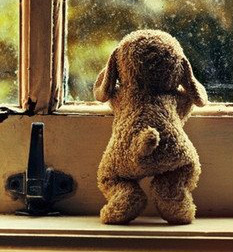
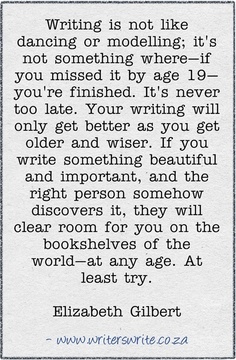
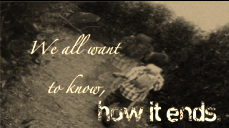


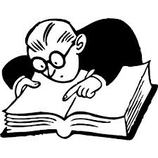
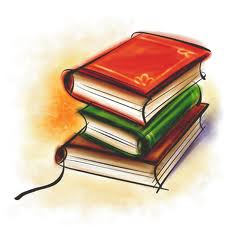
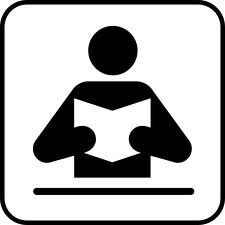
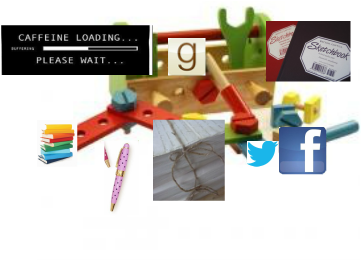
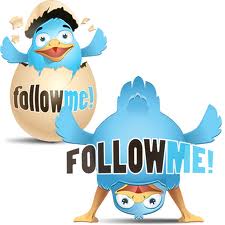

 RSS Feed
RSS Feed
